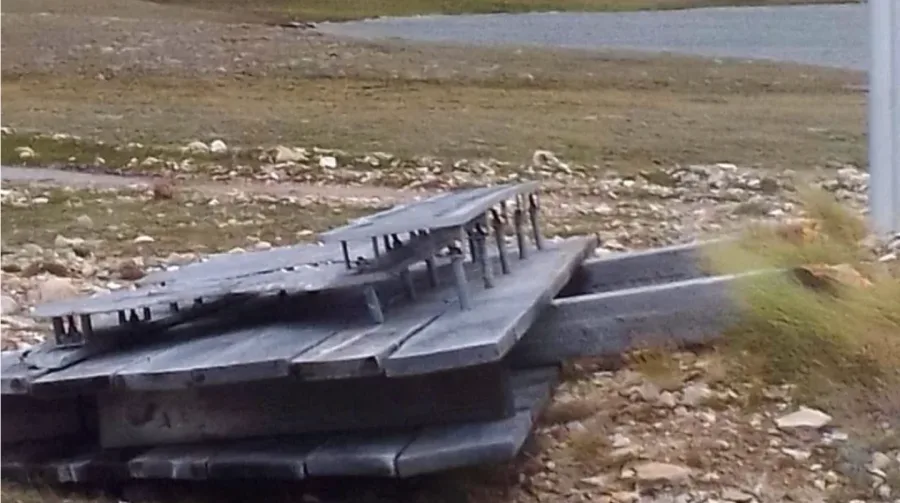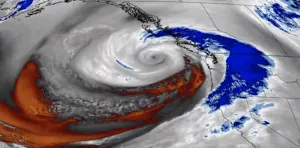
Winds hitting Nunavut are 'unusual' this time of year, here's why
The unseasonably high winds that ripped through Cambridge Bay and other communities in western Nunavut on Thursday are now heading north to Grise Fiord.
"It's an uncharacteristic low pressure system for this time of year," said Sarah Hoffman, a meteorologist with Environment Canada.
July and August in Cambridge Bay typically bring calm and stable conditions, she said, not winds gusting between 90 to 110 kilometres per hour.
As for the cause of this week's turbulence, Hoffman attributed that to the big differential between the cold air in the North and hot air from the South.
While the wind warning issued by Environment Canada on Thursday is now over for Cambridge Bay, the damage remains.

The sign at the Ovayok Territorial Park entrance near Cambridge Bay lies on the ground after what Environment Canada called unusual wind gusts on Thursday. (Submitted to CBC News by Curtis Norberg)
DON'T MISS: Disastrous megaflood could cause historic damage in California, study warns
Curtis Norberg shared a photo of the large sign by the territorial park entrance near Ovayok (Mount Pelly) that had been ripped off.
The winds also tore sheets from roofs and siding from the co-op warehouse, it also pushed power poles so they were leaning sideways.
On Thursday morning, resident Aopak Angulalik, said she saw people struggling to close car doors.
The high winds in Cambridge Bay also closed municipal services, shut offices and businesses, postponed events and cancelled flights.
WATCH: What it's like enduring intense Chinook winds on an Alberta mountaintop
What Hoffman called a "significant wind" is now hitting Grise Fiord with gusts also ranging between 90 to 110 kilometres per hour.
Already on Friday morning, the weather had closed businesses, offices and cancelled a flight south to Resolute Bay.
Hoffman cautioned Nunavut residents who may be on the land to keep an eye out for a wind warning.
"A strong wind on the water is really scary and can cause capsizing," she said. "On the land, you're exposed, that can be a tough thing to wait out."
This article, written by Jane George, was originally published for CBC News on Aug. 12, 2022.









